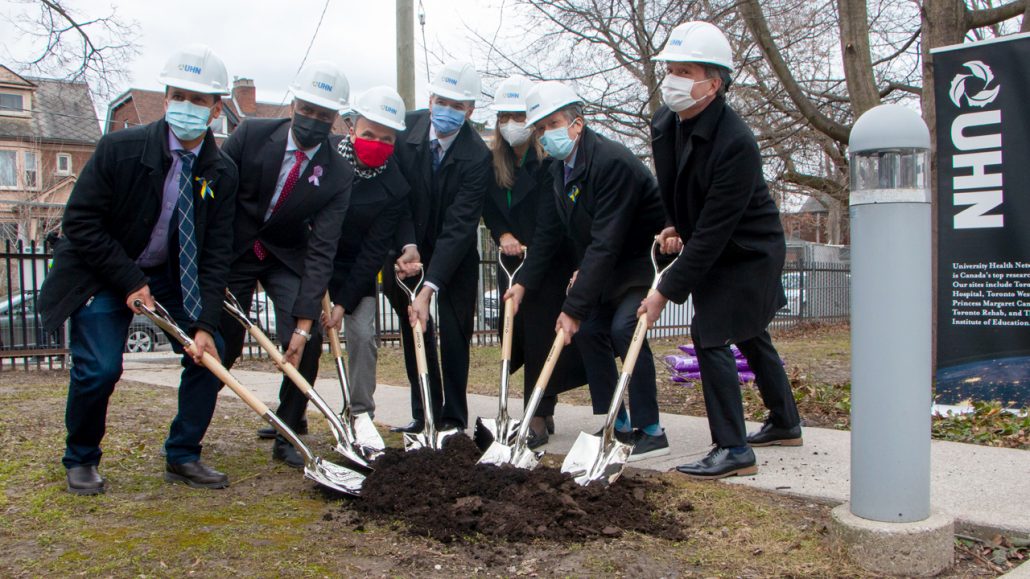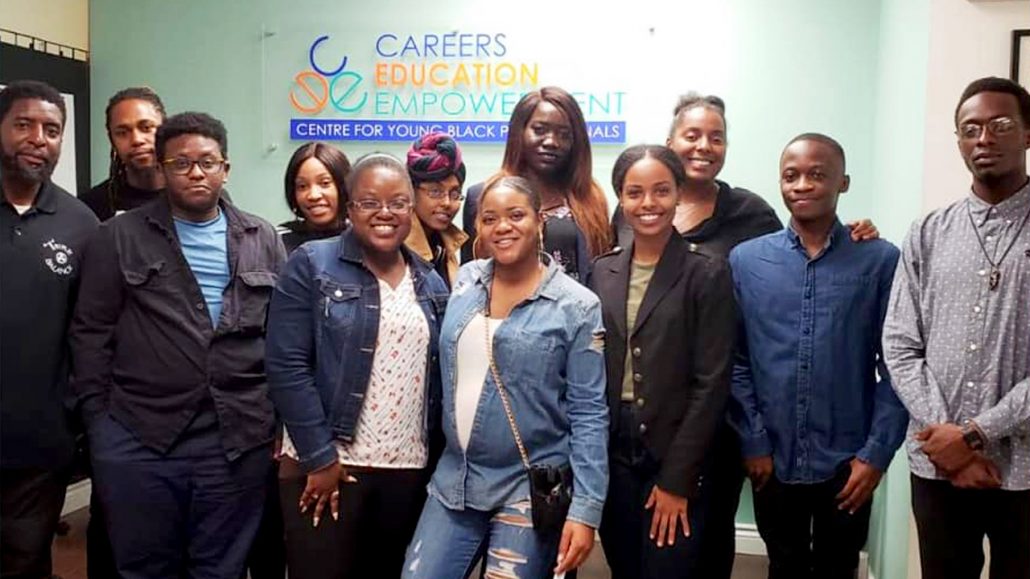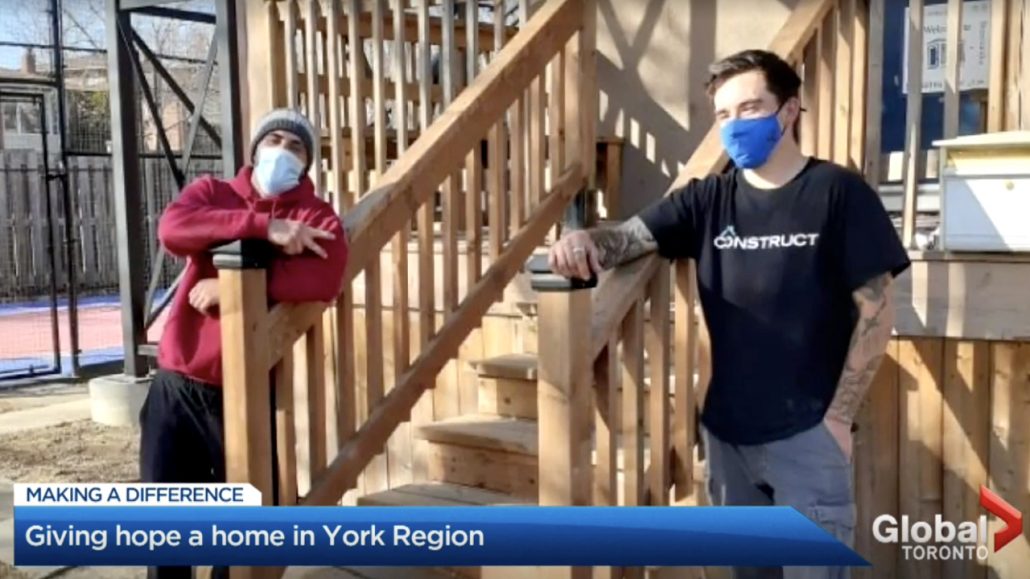
United Way is investing in affordable housing and homelessness supports
Dear Friend,
Many of us have been engaged in near-daily conversations about our housing crisis. Home prices at record highs and rent increases forcing many out of their homes.
Regardless of the size or shape, we understand that home is safety. It is stability. It is a place to shower before a job interview and shelter from the storm. A place to isolate amidst a pandemic or rest after a long day. A place for privacy, for comfort, for photographs of pets and childhood.
Thanks to your support, United Way invests significantly in a range of affordable housing and homelessness supports and programs. While much of that work addresses basic needs and keeping people housed, we never lose sight of the need for systemic change, and work ambitiously towards affordable, permanent solutions.
So I was quite moved, proud, when we broke ground on the first phase of one of those ambitious projects earlier this month. In partnership with the City of Toronto and University Health Network (UHN), phase one of this innovative build will create 51 new modular, supportive homes in Parkdale. That same day we broke ground, the federal government awarded an additional $201.5 million in Rapid Housing Initiative funding for Toronto – a critical investment we have championed with the City and community partners.
This Social Medicine Initiative will act as a model of what can be done to house seniors, women, Indigenous people, racialized people and people with disabilities who are facing or experiencing homelessness and who have high health needs. Beyond providing shelter, the build incorporates health and social supports which may include harm reduction, access to nursing and primary care, and easy access to community agencies and peer workers, all of which will streamline access to healthcare, food, transportation, good jobs, social engagement, and life skills development. Towards that end, United Way has leveraged community expertise and lived experience, using equity as our guiding principle.
To get here required participation and coordination across all three levels of government, UHN, and United Way, and will involve many of the agencies we fund and support as we continue this work.
Humbled that we can be part of any project that provides safety, comfort, and rest for those who have waited so long to find home.
And all because community champions like you care enough to help meet our most pressing needs and, all the while, improve social conditions – in a united way.
Always, and only, thank you.
Daniele Zanotti
President & CEO
United Way Greater Toronto
Things to Know Right Now

Beyond Foodbanks
A new report is highlighting direct correlations between housing affordability, minimum wage and food bank usage. It says, for example, that a $30 increase in rent per month would lead to 73,776 more visits to food banks annually in a place like Toronto, and a $1 increase in minimum wage would lead to almost 36,876 fewer visits.
Paul Taylor, executive director of United Way partner agency FoodShare, recently urged governments to raise social assistance to address rising food costs. “The most effective remedy for food insecurity is to provide people with income,” he wrote.
Here at United Way, we fund sector leaders like FoodShare, The Stop and York Region Food Network. At the same time, dedicated programs such as the General Mills Food Grants focused on seeding new systems-level approaches, and we support leading advocacy organizations like The Workers’ Action Centre to push for progressive policies, including emergency sick leave.

Targeting Inequities in the Labour Market
In February, StatsCan released its latest employment figures, which showed that unemployment levels have returned to where they were pre-pandemic. However, a closer look shows that employment rates are uneven across demographics, leaving visible minority women, youth, and older adults disproportionately unemployed. To help respond to these types of disparities in our collective economic recovery, United Way initiatives like Good Jobs, part of the Inclusive Local Economic Opportunity initiative, facilitate neighbourhood-based workplace development to help employers address recruitment and retention challenges and meet diversity, equity and inclusion goals. United Way also funds diverse programs like CEE Centre For Young Black Professionals and participates in initiatives like the Youth Employment Table that help youth build employment skills and access job placements.
Local Love in Action

March 31 was Trans Day of Visibility—a day to celebrate the lives, resilience and contributions of 2Spirit, trans and non-binary people. The day is also an important opportunity to advocate for the rights of this community, like bringing comprehensive, universal and accessible healthcare for the trans community in Ontario, and to raise awareness of the barriers that many continue to face on a daily basis. It’s part of the work that United Way-supported The 519 does day in and day out. And on March 31, their staff and community shared words of affirmation for the 2Spirit, trans and non-binary community they support, and some key calls to action for all allies.
Update from the Frontlines

The pandemic has reminded us of the deeply embedded inequities that impact individuals facing systemic barriers. Michael Braithwaite, CEO of United Way partner Blue Door, points to programs like Construct, a paid training program supported by Blue Door and United Way’s Toronto Enterprise Fund (TEF), as one way to address these barriers in the labour market. These programs are crucial to creating employment opportunities for individuals while providing wraparound supports to set them up for success. “Participants face so many roadblocks in life and now they are leaving with confidence and are able to go into so many trades,” says Braithwaite. Some of the individuals who enter the program include women escaping violence and 2SLGBTQ folks. For over two decades, TEF has funded businesses that create training and job opportunities for people facing systemic barriers to employment. Since 2000, more than 75 per cent of TEF participants have entered the labour market.